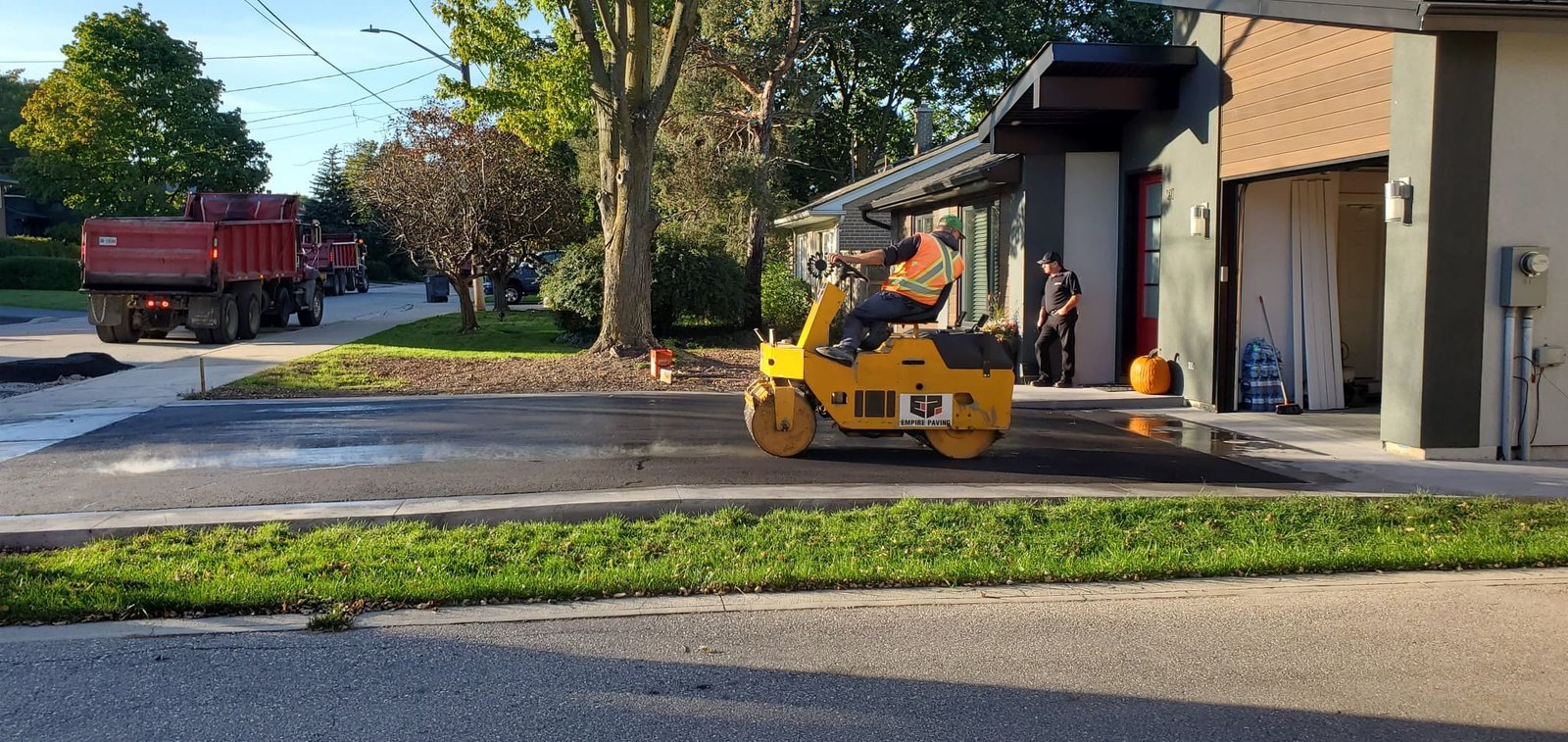2025 Driveway Repaving Costs: What You Need to Know for Budgeting
As a homeowner, maintaining your property is essential for both its aesthetic appeal and overall value. One of the most significant aspects of home maintenance is the condition of your driveway. Over time, wear and tear can lead to cracks, potholes, and unsightly surfaces, necessitating driveway repaving. In 2025, the costs associated with this home improvement project can vary significantly. Understanding driveway repaving costs will help you budget effectively and make informed decisions about materials and labor.

This article delves into the various factors influencing driveway repaving costs, including the different materials available, labor expenses, and tips for budgeting. By the end, you will have a comprehensive understanding of what to expect when it comes to repaving your driveway and how to prepare your finances accordingly.
Factors Influencing Driveway Repaving Costs
Driveway repaving costs can vary widely based on several factors. Understanding these elements will help you plan your budget accurately.
1. Type of Material
The material you choose for repaving your driveway significantly impacts the overall cost. Here are some common driveway materials and their associated costs:
- Asphalt: Typically ranges from $1,400 to $4,000 for a standard two-car driveway, making it one of the most affordable options.
- Concrete: Generally costs between $3,000 and $12,100, depending on the finish and thickness of the slab.
- Gravel: One of the cheapest options, gravel driveways can cost as little as $1,400, but may require more maintenance over time.
- Brick or Pavers: These materials can be more expensive, ranging from $5,000 to $15,000, depending on design complexity and labor.
2. Size of the Driveway
The size of your driveway is another critical factor in determining repaving costs. Larger driveways require more materials and labor, resulting in higher expenses. Measure the square footage of your driveway to calculate the estimated cost based on your chosen material.
3. Labor Costs
Labor costs can vary significantly based on geographic location, contractor experience, and the complexity of the job. On average, labor can range from $50 to $150 per hour. If your driveway requires extensive preparation work, such as excavation or grading, labor costs may increase substantially. Always obtain multiple quotes from different contractors to ensure you get a fair price.
4. Additional Features and Repairs
If your driveway has existing issues, such as drainage problems or extensive cracks, additional repairs may be necessary before repaving. These repairs can add to the overall costs of the project. Upgrades like decorative borders or enhanced drainage systems can also increase your budget.
Budgeting for Driveway Repaving
Once you understand the factors affecting driveway repaving costs, you can start budgeting effectively. Here are some practical tips to help you prepare financially for this home improvement expense:
1. Set a Realistic Budget
Determine how much you can afford to spend on repaving your driveway. A realistic budget should take into account not just the material and labor costs, but also additional expenses like permits or unexpected repairs. Aim to allocate a contingency fund of 10-20% of your total budget for unforeseen costs.
2. Research Material Options
Investigate the different types of driveway materials available and their respective costs. Consider factors such as durability, maintenance requirements, and aesthetic appeal. While it may be tempting to choose the cheapest option, remember that investing in higher-quality materials can save you money in the long run through reduced maintenance and increased lifespan.
3. Get Multiple Quotes
Contact at least three contractors for quotes on your driveway repaving project. This will give you a clearer picture of the market rate for labor and materials in your area. Don’t hesitate to ask for itemized quotes that break down costs for materials, labor, and any additional services.
4. Consider Financing Options
If the cost of repaving your driveway exceeds your current budget, explore financing options. Many contractors offer payment plans or financing through third-party lenders. Just be sure to read the terms carefully to avoid unexpected fees or high-interest rates.
Common Driveway Repaving Materials
Choosing the right material for your driveway is crucial not only for aesthetics but also for functionality. Here’s a closer look at the most common driveway materials:
1. Asphalt
Asphalt is a popular choice for homeowners due to its affordability and quick installation. It is durable and can last up to 20 years with proper maintenance. However, it can soften in extreme heat and may require sealcoating every few years to prolong its lifespan.
2. Concrete
Concrete driveways are known for their durability and long lifespan (up to 30 years). They offer a clean, modern look but can be more expensive upfront. Concrete can also crack if not installed properly, so hiring a reputable contractor is essential.
3. Gravel
Gravel driveways are the least expensive option and can be a great DIY project. However, they require regular maintenance, such as replenishing gravel and controlling weeds. Gravel is also less stable than asphalt or concrete, which can lead to ruts and uneven surfaces over time.
4. Brick or Pavers
Brick and paver driveways offer a unique, attractive appearance and can be customized to fit your style. They are durable and can last for decades, but installation can be labor-intensive, making them one of the more expensive options.
Frequently Asked Questions (FAQ)
1. How long does it take to repave a driveway?
The duration of the repaving process can vary depending on the size of your driveway and the materials used. Generally, it can take anywhere from one to three days for the project to be completed.
2. Can I repave my driveway myself?
While DIY driveway repaving is possible, it requires significant labor, equipment, and expertise. For best results, hiring a professional contractor is recommended, especially for materials like asphalt and concrete.
3. How do I know if my driveway needs repaving?
Signs that your driveway may need repaving include visible cracks, potholes, drainage issues, and a faded or worn appearance. If repairs become frequent and costly, repaving may be the best solution.
4. Is it necessary to seal an asphalt driveway after repaving?
Yes, sealing your asphalt driveway is essential for protecting it from weather elements, oil spills, and UV damage. It’s recommended to seal your driveway every two to three years.
5. What is the best season to repave a driveway?
The best time to repave a driveway is during the warmer months, typically late spring to early fall, when temperatures are consistently above 50°F (10°C) for optimal curing.
Conclusion
Understanding the costs associated with driveway repaving is crucial for effective budgeting and planning. With prices ranging from $1,400 to $12,100, depending on materials and labor, it’s essential to consider all factors influencing the final cost. By researching materials, obtaining multiple quotes, and setting a realistic budget, you can make informed decisions that enhance your property’s value and curb appeal. Remember that investing in high-quality materials and professional labor can save you money in the long term and ensure your driveway remains in excellent condition for years to come.
📰 Original Source
Este artigo foi baseado em informações de: https://www.nerdwallet.com/article/mortgages/cost-to-repave-driveway


